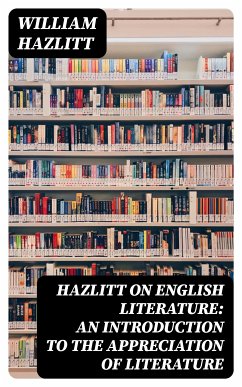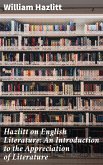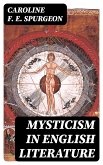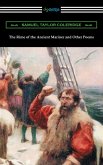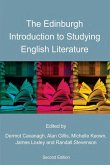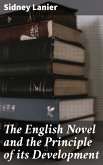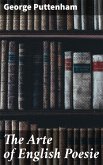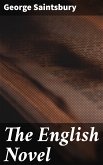In "Hazlitt on English Literature: An Introduction to the Appreciation of Literature," William Hazlitt offers a keen and insightful examination of English literary works, underpinned by his belief in the intrinsic value of literature as a means of understanding human experience. Utilizing a distinctive blend of personal reflection and critical analysis, Hazlitt draws upon his extensive knowledge of literary history, engaging with diverse authors and movements from the Renaissance to the Romantic era. His prose is both accessible and richly eloquent, reflecting the vibrant intellectual atmosphere of early 19th-century England and fostering a deep appreciation for the art of writing. William Hazlitt (1778-1830) was a prominent essayist, critic, and philosopher, whose literary pursuits were heavily influenced by his own tumultuous experiences and complex relationships with prominent literary figures of his time, including William Wordsworth and Samuel Taylor Coleridge. His background in painting and his passion for literature shaped his nuanced perspective, enabling him to bridge the gap between aesthetic appreciation and philosophical inquiry, which culminated in this seminal work. Readers who seek to deepen their understanding of English literature will find Hazlitt's essays not only enlightening but also an enriching experience that resonates with the timeless questions of art and humanity. This book remains a vital resource for both scholars and casual readers alike, bringing the beauty and depth of literary appreciation to the forefront.
Dieser Download kann aus rechtlichen Gründen nur mit Rechnungsadresse in A, B, BG, CY, CZ, D, DK, EW, E, FIN, F, GR, H, IRL, I, LT, L, LR, M, NL, PL, P, R, S, SLO, SK ausgeliefert werden.

